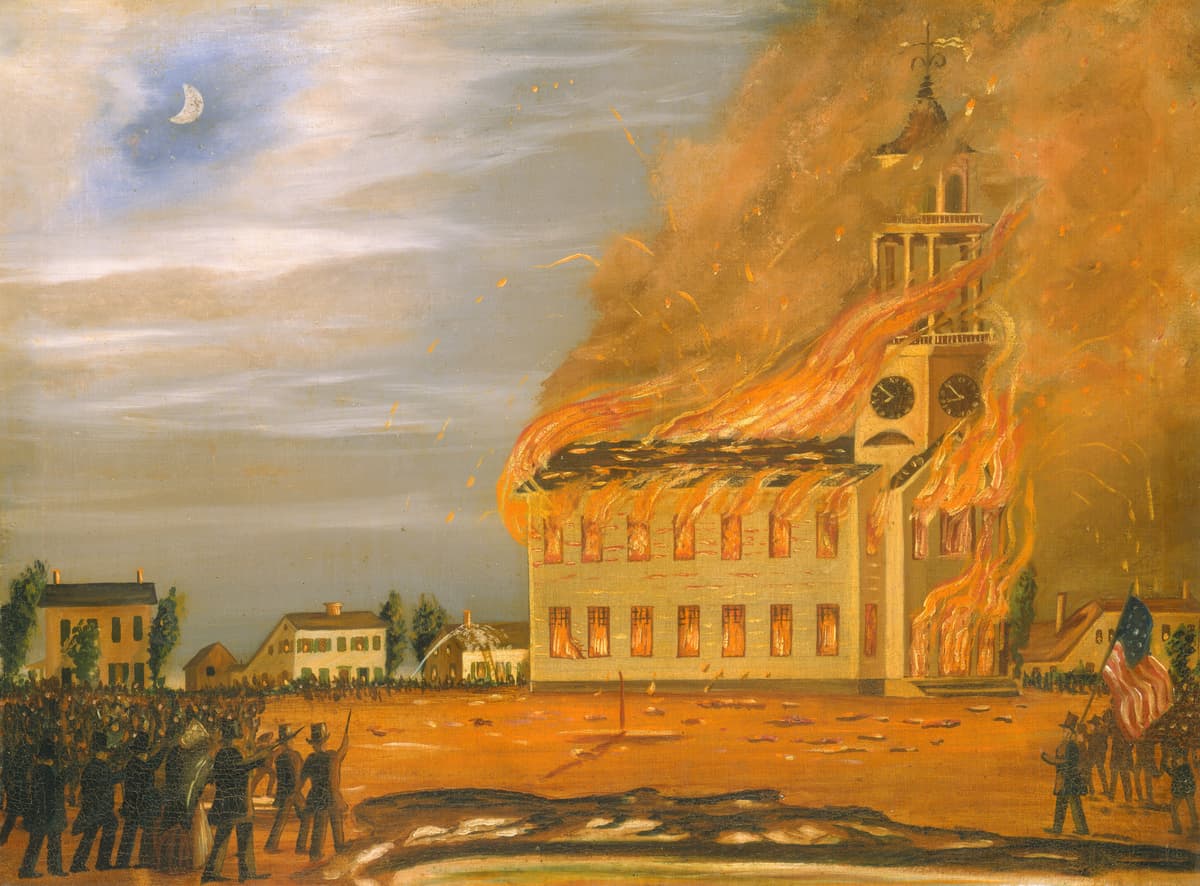Plaintiffs Focus on Maine’s Anti-Catholic History in Lawsuit Over State Voucher Program
Lawsuit says Maine intentionally amended the state’s human rights act prior to an unfavorable Supreme Court ruling about the state’s voucher program to make it impossible for religious schools to qualify for the program.

Maine’s campaign to circumvent a 2022 Supreme Court ruling barring the state’s tuition voucher program from excluding religious schools will be challenged in court by plaintiffs who are bringing the state’s history of anti-Catholicism into the fight.
A Catholic family, a Catholic school, and Catholic authorities in Maine have filed a lawsuit in federal court against the commissioner of the state’s Department of Education and members of the state’s Human Rights Commission.
They say anti-Catholic sentiment has a long and dark history in Maine, and that attempts to exclude Catholic schools from the state’s tuition voucher program is a legacy of that. They also allege the policies violate the First Amendment’s Free Exercise Clause and the Fourteenth Amendment’s Equal Protection Clause.
“Cutting out religious schools has a long and shameful pedigree,” senior counsel at Becket, a nonprofit law firm focused on religious liberty, Adele Keim, who represents the plaintiffs, tells the Sun. “That’s a dark part of Maine’s history, and Maine is trying to go back to that bad, dark time.”
It turns out Maine does have a history of anti-Catholic sentiment that dates back to the mid-19th century, when waves of European immigrants, particularly from Ireland, arrived in the state. This was common for East Coast cities — “Irish Need Not Apply” signs were ubiquitous, as the new world inherited the old world’s sectarian conflicts. In Maine, tensions boiled over into riots.
In 1834, there was an anti-Catholic riot at Bangor. In 1854, anti-Catholic rioters, spurred by a nativist “Know Nothing” political party agitator, burned down the city’s Catholic Church. The church burning was immortalized in a series of paintings by John Hilling.
Attempts to lay a new cornerstone for a Catholic church at Bath were thwarted a year later by a violent mob. In 1856, another Catholic church at the town of Ellsworth was burned to the ground.
In the complaint, filed last week, St. Dominic Academy v. Makin, plaintiffs draw a line from anti-Catholic sentiment of the past to today. They recall a Republican senator from Maine, James Blaine, who championed an amendment to the Constitution to bar government money to schools with religious instruction. Blaine’s constitutional amendment failed, but he pushed for states to adopt similar legislation. All but 12 states did. Maine was one of the exceptions.
“These Blaine Amendments were ‘born of bigotry’ and ‘arose at a time of pervasive hostility to the Catholic Church and to Catholics in general,’” the plaintiffs say in their lawsuit.
“It is against this historical background,” the plaintiffs add, that Maine’s legislature in 1982 changed the state’s tuition voucher program by adding a new requirement “that any school receiving tuition funds be ‘a nonsectarian school in accordance with the First Amendment of the United States Constitution.’”
Ms. Keim, too, tries to frame the case in terms of history, tying the case back to Blaine. “We don’t want funding for religious schools and, specifically, Catholic schools,” is how Ms. Keim describes Blaine’s outlook. “We don’t want government money to go to them.”
The Catholic family who is suing wants to send their children to a Catholic school, St. Dominic Academy, using the state’s tuition assistance program. Maine offers tuition vouchers for private schools to families who live in rural areas with no public schools.
Yet plaintiffs charge that the Maine legislature and bureaucrats intentionally amended the state’s human rights act prior to the Nine’s decision in Carson v. Makin — which prohibited excluding religious schools in its voucher program — to make it impossible for religious schools to comply with the act and qualify for the program.
At issue are several provisions in the human rights act, but the most contentious for religious schools is the inclusion of protections regarding sexual orientation and gender identity.
While some Catholic schools have liberalized their teachings, Catholic doctrine states that marriage is between a man and a woman. Pope Francis has also spoken critically of gender identity, calling it “a great enemy to marriage today: the theory of gender.” He also said, “There is the mistake of the human mind — gender theory — creating so much confusion.”
These Catholic positions, critics say, are antithetical to Maine’s human rights act. To comply with the act, teachers and administrators must respect a child’s gender identity, permit bathroom use based on gender identity, and not discriminate in hiring based on sexual orientation or gender identity.
“The education provided by the schools at issue here is inimical to a public education,” Maine’s attorney general, Aaron Frey, has said. “They promote a single religion to the exclusion of all others, refuse to admit gay and transgender children, and openly discriminate in hiring teachers and staff.”
It’s difficult to say how much history will play into the current lawsuit. Anti-Catholic sentiment was widespread in the 19th century, yet the country as a whole has gotten less religious in the past 50 years. Maine has turned more Democratic. Religious persons across the country — not just Catholics — feel the strain of anti-religion sentiment.
LGBTQ issues have also become a flashpoint. In Michigan last week, an all-Muslim city council in Hamtramck banned LGBTQ Pride flags and other “religious, ethnic, racial, political, or sexual orientation group flags” from flying on public property.
A group of Armenian parents at Glendale, California brawled with LGBTQ activists outside a school board meeting last week over the board’s decision to celebrate Pride Month in schools.
The case to be argued in Maine is about religious liberty — the freedom to exercise religion and freedom from it. Plaintiffs allege that the current state law discriminates against their First Amendment right to exercise their religion and educate their children as they see fit. The state argues that tax dollars shouldn’t go to schools that discriminate against LGBTQ persons.
As of Monday evening, Maine has not yet responded to the lawsuit in federal court.

